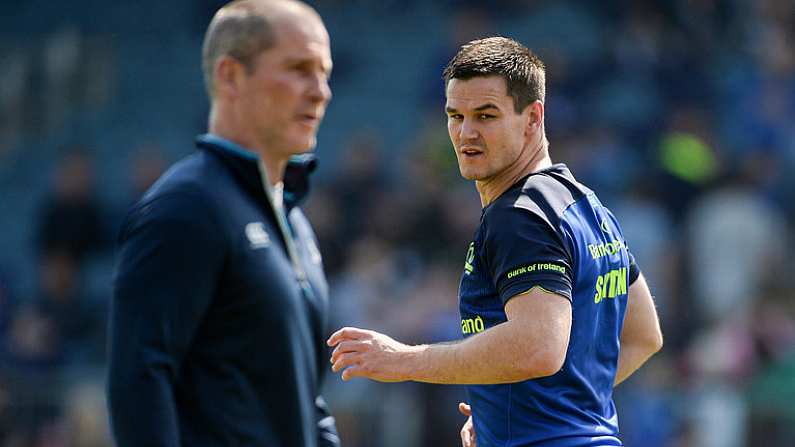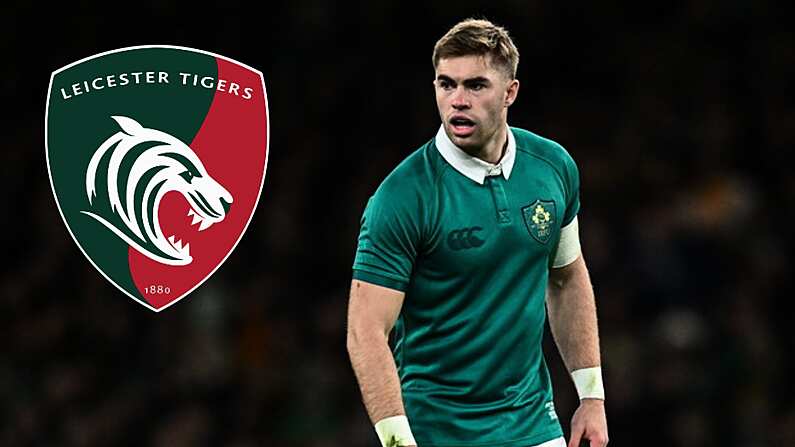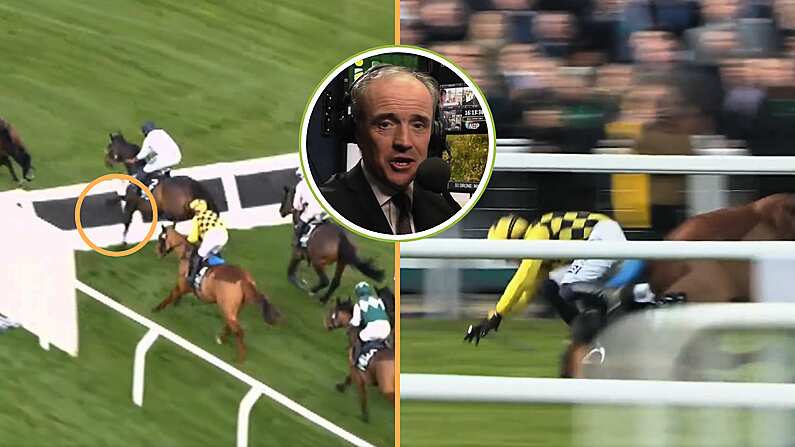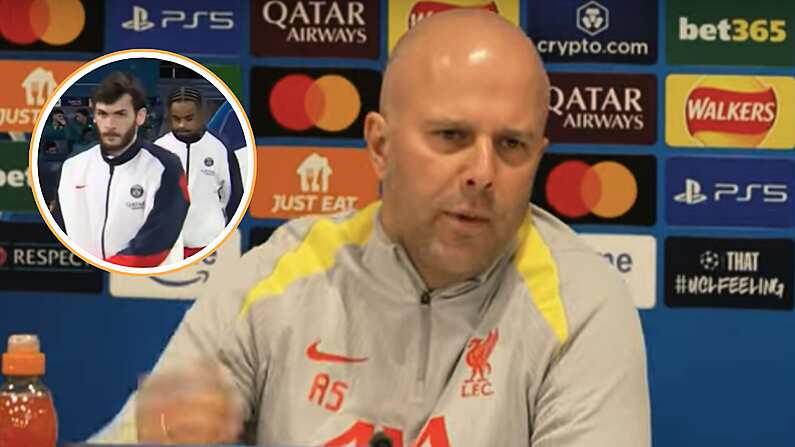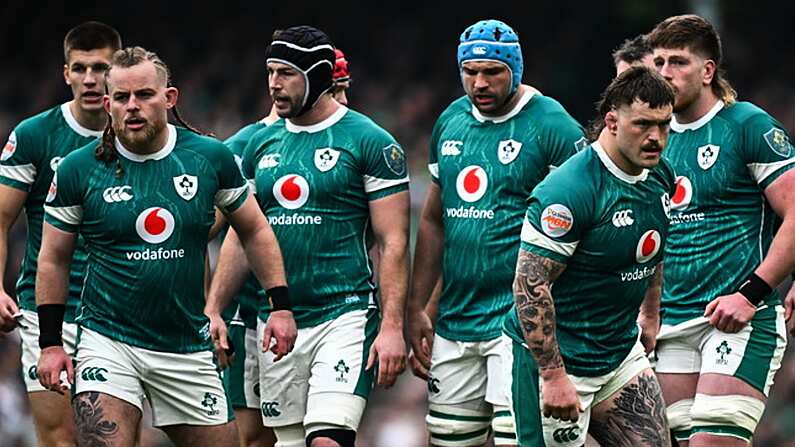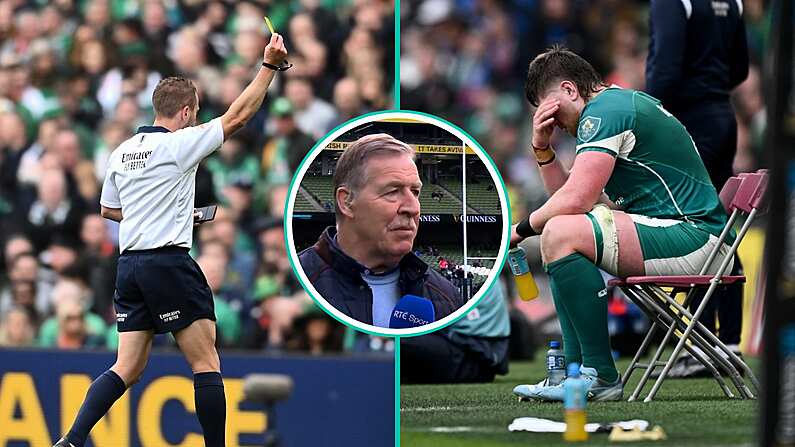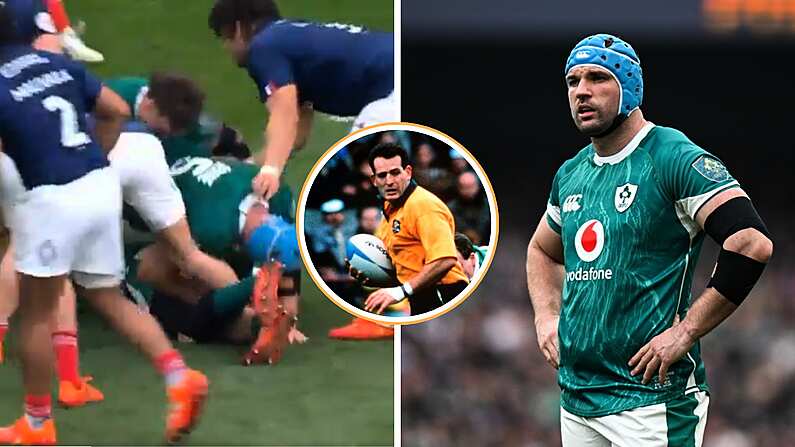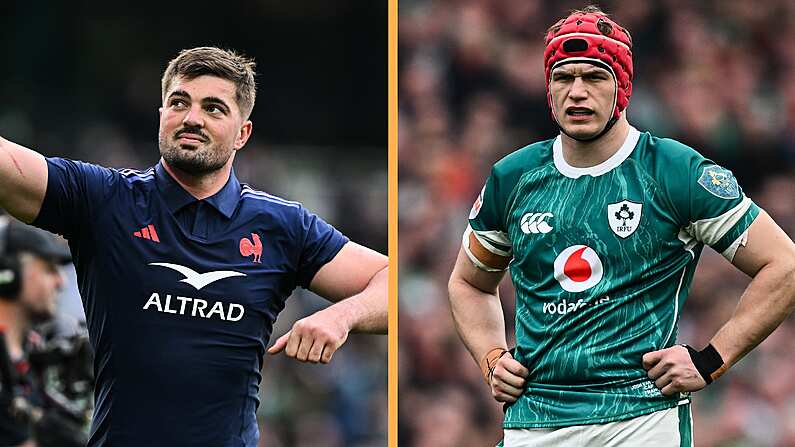Stuart Lancaster has revealed one of the crucial factors in his decision to join the Leinster backroom team was a text from Jonathan Sexton.
Lancaster was speaking on Off The Ball when he explained the situation that faced him after his reign as England head coach came to an end. The Englishman was offered several positions before eventually agreeing to join Leinster as a senior coach.
It was great to be called, to be asked about it. It was great to feel wanted that you could come and add value. One of the most powerful things that happened was Johnny Sexton sent me a text, who I never really met, to say 'let me know what we need to do to get it over the line because we'd love you to come.' So then that ticks that box for me, they want you to come.
In his previous role, Lancaster took the England head coaching position after a series of off-field problems, most famously a dwarf-throwing episode during the 2011 World Cup. He set about trying to reform the culture and ethos of the team and over the next four years he secured 2nd place in the Six Nations four years in a row and defeated the All Blacks.
However, the 2015 World Cup was an unmitigated disaster as they failed to get out of their group. As a result, Lancaster was out of a job. Since coming on as assistant coach Leinster have enjoyed a massive improvement in performance, most recently beating the Exeter Chiefs in what was the first time they lost at home for a year.
Throughout the interview, Lancaster was brutally honest, especially when speaking about the difficulty commuting to work in Leinster. The Cumberland man has travelled over from the UK for work for the past 15 months. Lancaster has a 17-year-old daughter and 16-year-old son and struggles to be away from them, for fear of missing out:
(There's) So many big moments I've missed in the last eighteen months.
These include his daughter passing her driving test, which he learned about through Snapchat and his son making the England Academy.
Availability bias ensures Lancaster's tenure as English coach is remembered in skewed terms. While it was a disappointing ending, he did instil much-needed respectability to the squad and an organisational structure that remains in place today.
At only 48 and looks set to still enjoy a prolonged career as a rugby coach.
You can listen to the full interview here.

